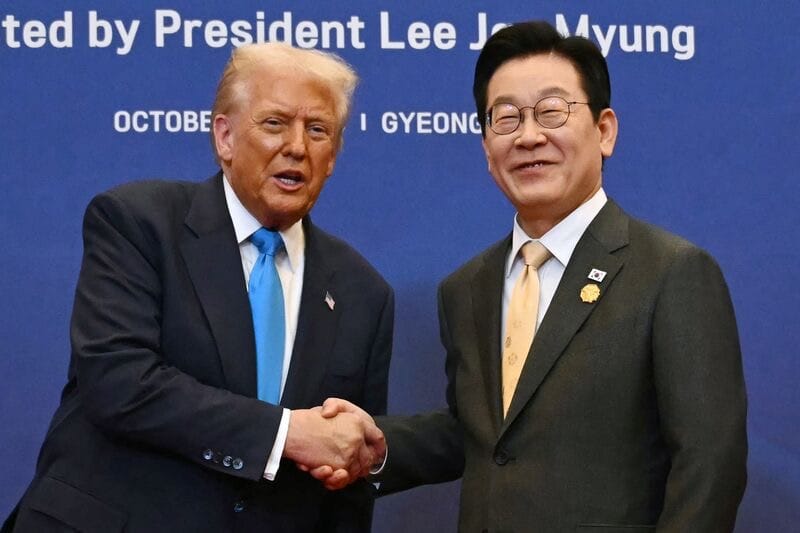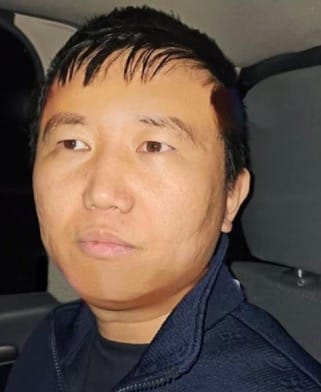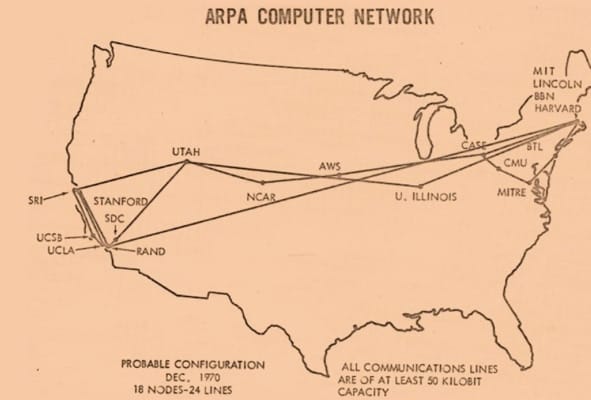Top 5 US news stories
October 29 2025

US, South Korea Finalize Trade Deal; Seoul Pledges $350B in US Investments
White-Collar Layoffs Surge as Major Firms Cut Staff, Bet on AI
UPS Shifts to Gig Workers for Deliveries, Cutting Costs and Union Jobs
Unlike Other Dem-Led Cities, Memphis Embraces National Guard Presence
Accused Chinese Fentanyl Kingpin in US Custody After Failed Escape to Russia
…US GOVERNMENT SHUTDOWN ENTERS 29th DAY…
1. US, South Korea Finalize Trade Deal; Seoul Pledges $350B in US Investments
The US and South Korea finalized a trade deal after months of negotiation to iron out details of a framework agreement struck in July. Seoul would spend $150 billion on shipbuilding in the US and provide $200 billion in cash as part of an investment pledge. The investment would be capped at $20 billion annually. Both Trump and South Korean President Lee Jae Myung praised the strength of their countries’ alliance. Trump said the US is “wedded” to South Korea, while Lee awarded him South Korea’s highest medal and presented a replica of a Silla-era gold crown. Trump said he expects to lower tariffs on Chinese goods imposed over the fentanyl crisis and plans to discuss Nvidia’s Blackwell AI chip with Xi. China confirmed the two will meet on Thursday, while a White House official says the summit is planned for mid-morning. Beijing has bought at least two cargoes of US soybeans, its first known purchase this season, Bloomberg News reported. China had been shunning US soybeans, using the commodity as a bargaining chip in its trade war with Washington.
Bloomberg
2. White-Collar Layoffs Surge as Major Firms Cut Staff, Bet on AI
A. The nation’s largest employers have a new message for office workers: help not wanted. Amazon.com said this week that it would cut 14,000 corporate jobs, with plans to eliminate as much as 10% of its white-collar workforce eventually. United Parcel Service said Tuesday that it had reduced its management workforce by about 14,000 positions over the past 22 months, days after the retailer Target said it would cut 1,800 corporate roles. Earlier in October, white-collar workers from companies including Rivian Automotive, Molson Coors , Booz Allen Hamilton and General Motors received pink slips—or learned that they would come soon. Added up, tens of thousands of newly laid off white-collar workers in America are entering a stagnant job market with seemingly no place for them. A leaner new normal for employment in the U.S. is emerging. Large employers are retrenching, making deep cuts to white-collar positions and leaving fewer opportunities for experienced and new workers who had counted on well-paying office work to support families and fund retirements. Nearly two million people in the U.S. have been without a job for 27 weeks or more, according to recent federal data. Behind the wave of white-collar layoffs, in part, is the embrace by companies of artificial intelligence, which executives hope can handle more of the work that well-compensated white-collar workers have been doing. Investors have pushed the C-suite to work more efficiently with fewer employees.
B. It is the corporate gamble of the moment: Can you run a company, increasing sales and juicing profits, without adding people? American employers are increasingly making the calculation that they can keep the size of their teams flat—or shrink them through layoffs—without harming their businesses. Part of that thinking is the belief that artificial intelligence will be used to pick up some of the slack and automate more processes.
WSJ
3. UPS Shifts to Gig Workers for Deliveries, Cutting Costs and Union Jobs
UPS is increasingly relying on gig workers driving their personal vehicles to deliver smaller packages, a shift that marks a dramatic departure from the company's traditional brown-truck delivery model. The move is part of a broader cost-cutting effort that has resulted in buyouts and layoffs affecting 34,000 drivers and warehouse workers, saving the company $2.2 billion so far this year. The change reflects the economics of modern e-commerce: residential deliveries of lightweight packages are far less profitable than the business-to-business shipments that once dominated the industry, pushing UPS's domestic operating margins down from 14.2% a decade ago to just 6.4% in the third quarter. The transition has drawn sharp criticism from the International Brotherhood of Teamsters, which represents three-quarters of UPS's 400,000 U.S. employees. Union leaders say the company is replacing older, higher-paid drivers earning $45 an hour with younger workers making $23 an hour, eliminating good union jobs in the process.
WSJ
4. Unlike Other Dem-Led Cities, Memphis Embraces National Guard Presence
MEMPHIS, Tenn.— When President Trump pledged to send the National Guard to Democratic-led cities such as Washington, D.C., Chicago and Portland, Ore., he met condemnation, lawsuits and large protests. Then there is Memphis, where many have welcomed the roughly 150 National Guard troops that arrived this month, mobilized by Trump as part of a federal and state crackdown on crime in the city. “I’m looking for all the help I can get, I wish there was more,” said John Green, who manages a candy store on Main Street. “For Lease” signs hang in nearby storefronts, their windows boarded up. Business has been terrible this year, Green added, even during “Elvis Week,” the annual celebration of the city’s favorite son. “People just don’t want to come here anymore.” John Green, general manager of Dinstuhl's Fine Candy Company in Memphis, welcomes the National Guard. Downtown, where bluffs rise above the serpentine Mississippi River, George Campbell was walking his goldendoodle, Zac, when he spotted a group of National Guard soldiers in fatigues, handguns holstered at their hips. The 64-year-old psychologist said their presence had eased fears about crime. “It’s safe. What happened? Control is what happened,” he said. “It was out of control. This is necessary.”
WSJ
5. Accused Chinese Fentanyl Kingpin in US Custody After Failed Escape to Russia
MEXICO CITY—The accused Chinese drug boss was this close to the perfect getaway. In July, Zhi Dong Zhang escaped from house arrest in Mexico, where he was set to be extradited to the U.S. on drug-trafficking and money-laundering charges. The Justice Department accuses him of being the most important link between Chinese chemical producers and the Mexican cartels that make fentanyl. He then hopped onto a private jet to Cuba and boarded a flight to Russia, beyond the reach of U.S. and Mexican prosecutors. Authorities in Russia, perhaps not knowing Zhang’s true identity, refused him entry and ordered his immediate return to Cuba, said law-enforcement officials familiar with the case. Now, Zhang is in U.S. custody. He had been detained in Cuba, which extradited him back to Mexico on Thursday. From there he was delivered to the U.S., the Mexican government said. Bringing Zhang to justice represents a major blow for the global underworld network that links China to Mexico’s most powerful drug-smuggling cartels and their narcotics-distribution and money-laundering networks in the U.S., officials familiar with the case said. The Justice Department considers him one of the world’s most important drug traffickers, on par with Mexico’s most-wanted cartel bosses.

WSJ
October 28 1968: First electronic message is sent via internet precursor ARPANET
Fifty years ago, two events occurred that changed the world. First, a human being set foot on the moon; then, three months later, a simple message sent between two computers marked a major step in the development of the internet. Researchers at the University of California, Los Angeles (UCLA), successfully transmitted a first-of-its-kind electronic message to the Stanford Research Institute (SRI) over ARPANET, the forerunner of the modern internet.
At the time, what we now call the internet began as a rudimentary experimental computer network, commissioned and funded by the Advanced Research Projects Agency (ARPA) of the U.S. Department of Defense. After Russia launched its satellite Sputnik, President Dwight D. Eisenhower created ARPA in 1958 to accelerate scientific research and develop technologies with potential national defense applications. On that day in 1969, UCLA researchers typed the letter “l” and asked SRI, “Did you get the l?” “Got the l,” came the reply. They then typed “o,” received confirmation, and proceeded to type “g”—at which point the system crashed. The very first message on the internet was therefore the prescient word “lo” (as in “lo and behold!”). Unlike Samuel Morse’s deliberate “What hath God wrought” for the first telegraph message, this accidental “lo” proved a succinct and prophetic greeting for a new era.
The internet evolved rapidly after that first ARPANET message, expanding from a small government research network into a global infrastructure connecting billions of people. The introduction of TCP/IP protocols in the 1980s standardized communication across networks, while the invention of the World Wide Web in 1989 made information accessible through browsers and hyperlinks. By the 1990s and early 2000s, broadband, mobile networks, and cloud computing had transformed the internet into a foundation for global commerce, communication, and innovation. This digital revolution reshaped industries from publishing and retail to transportation and finance, spawning new business models such as e-commerce, social media, and gig work, while enabling real-time global collaboration.
Today, artificial intelligence is often described as a technological leap on par with the internet itself—one that both relies on and amplifies it. AI’s rise has been fueled by the vast data, connectivity, and computing power made possible through the internet. Like the early internet, AI is expected to reshape the economy by creating new markets and disrupting existing ones—automating tasks, accelerating innovation, and driving productivity while also raising new challenges around labor, regulation, and equity. In many ways, AI represents the next layer built atop the internet: a system that not only connects information and people but learns from them, transforming the digital world from a network of content into a network of intelligence.

We are temporarily pausing our podcasts as we revamp our app so any article can be read as audio
Found a mistake? Have a news tip or feedback to share? Contact our newsroom using the button below:
citizen journal offers three flagship products: a daily national news summary, a daily Kansas news summary, and local news and school board summaries from 25 cities across 5 states. Use the links in the header to navigate to national, kansas, and local coverage. Subscribe to each, some, or all to get an email when new issues are published for FREE!
Brought to you by (click me!)
Sources
- https://www.bloomberg.com/news/live-blog/2025-10-28/apec-summit-and-trump-s-asia-tour?ai=eyJpc1N1YnNjcmliZWQiOnRydWUsImFydGljbGVSZWFkIjpmYWxzZSwiYXJ0aWNsZUNvdW50IjowLCJ3YWxsSGVpZ2h0IjoxfQ==
- https://www.wsj.com/economy/jobs/white-collar-jobs-ai-324b749c?mod=hp_lead_pos1
- https://www.wsj.com/business/companies-hiring-jobs-ai-9ef675b6?st=kJJicK&reflink=article_copyURL_share
- https://www.wsj.com/business/logistics/why-ups-is-increasingly-turning-to-gig-drivers-for-deliveries-aded8b08?mod=hp_lead_pos5
- https://www.wsj.com/us-news/memphis-tennessee-national-guard-reactions-d7f7bb54?mod=wknd_pos1
- https://www.wsj.com/world/americas/most-wanted-fentanyl-producer-is-in-cuban-custody-after-brazen-escape-09ce6d7f?mod=hp_lead_pos

